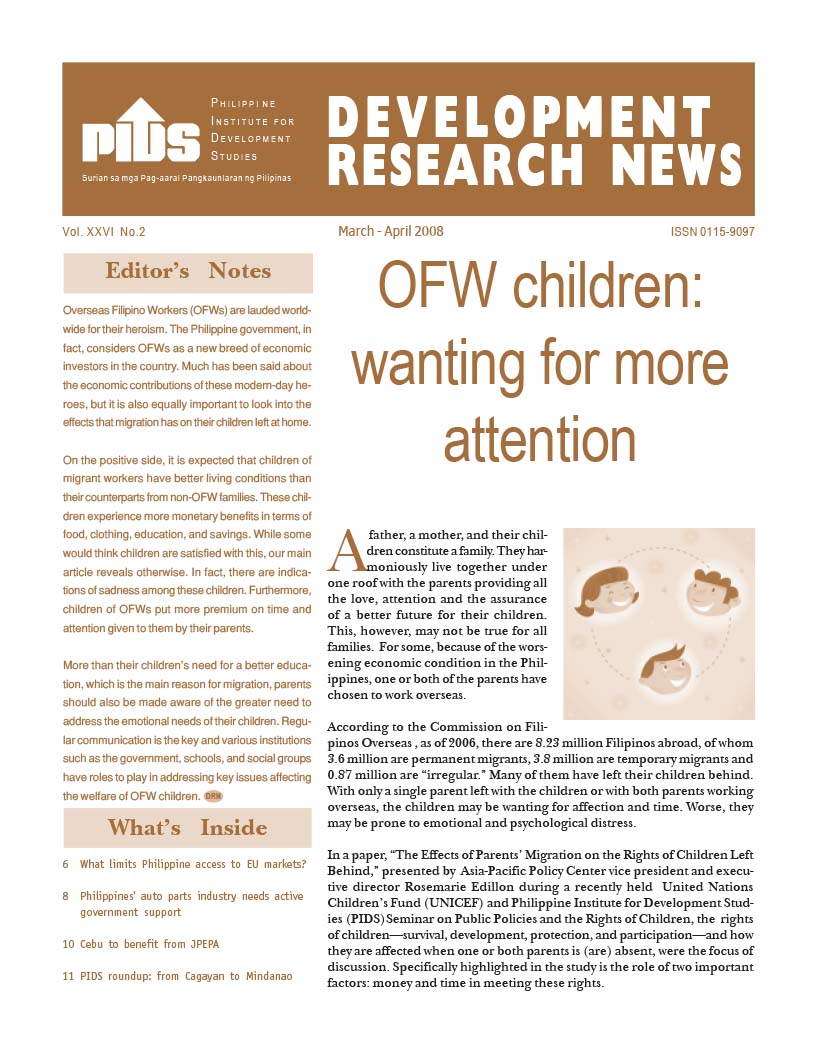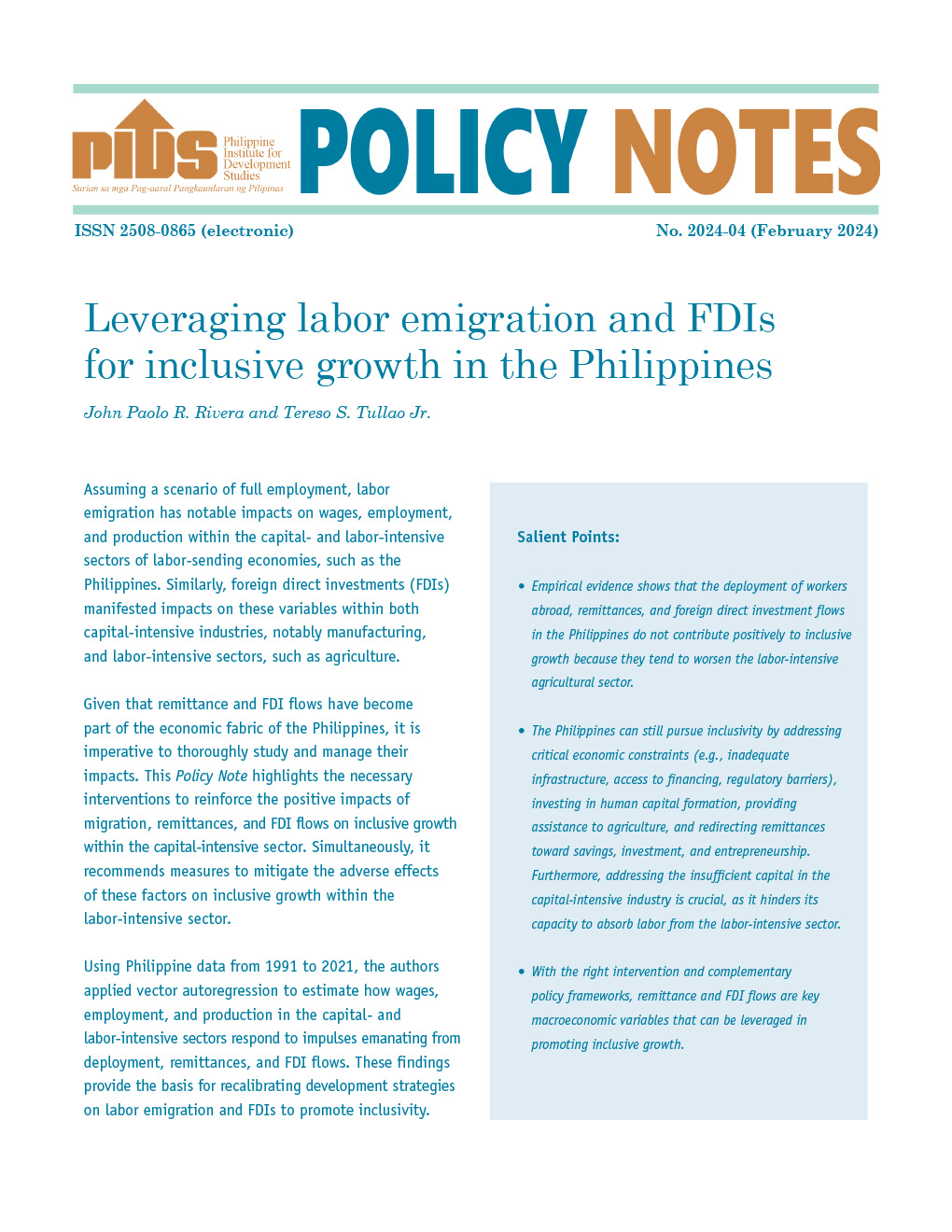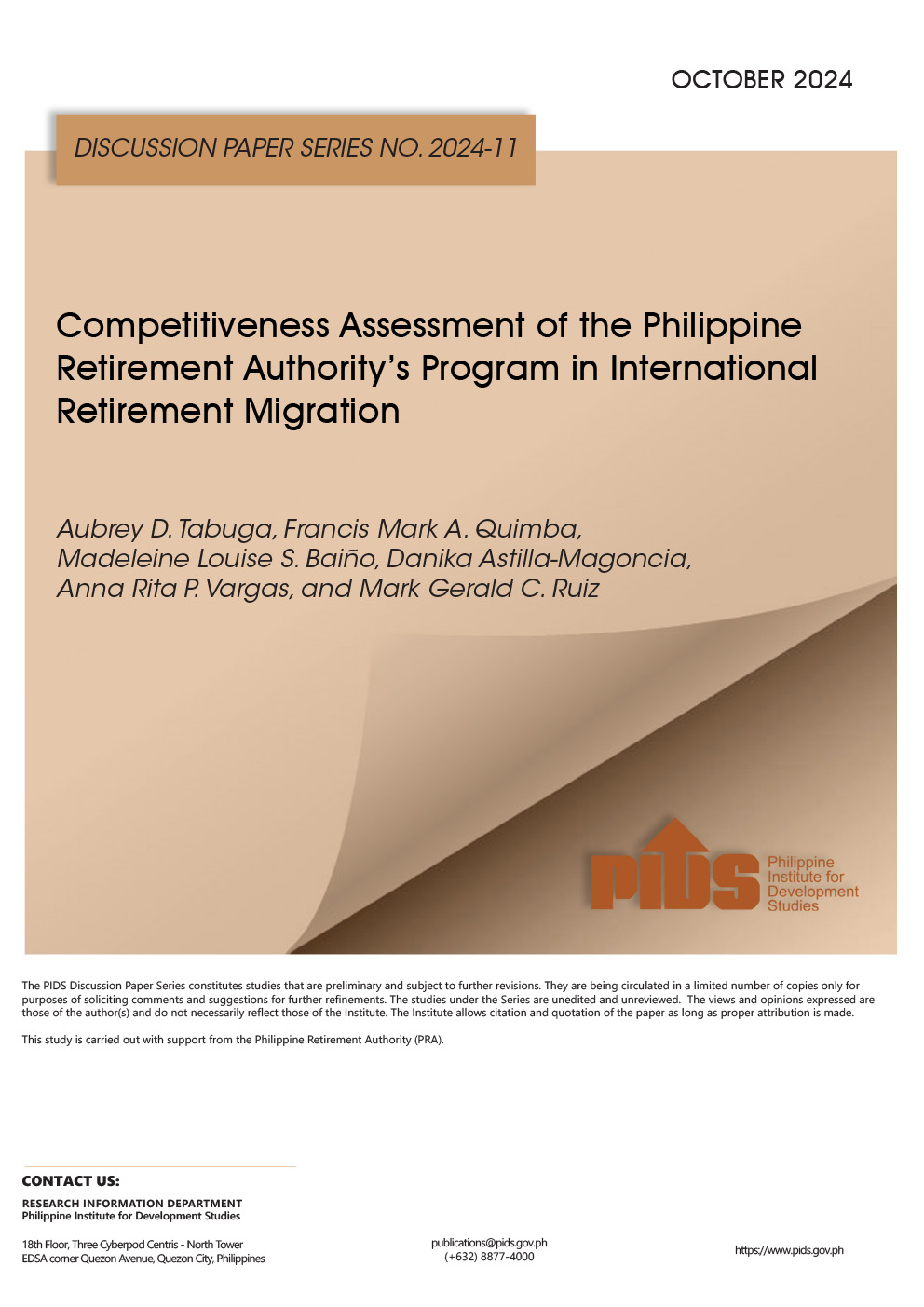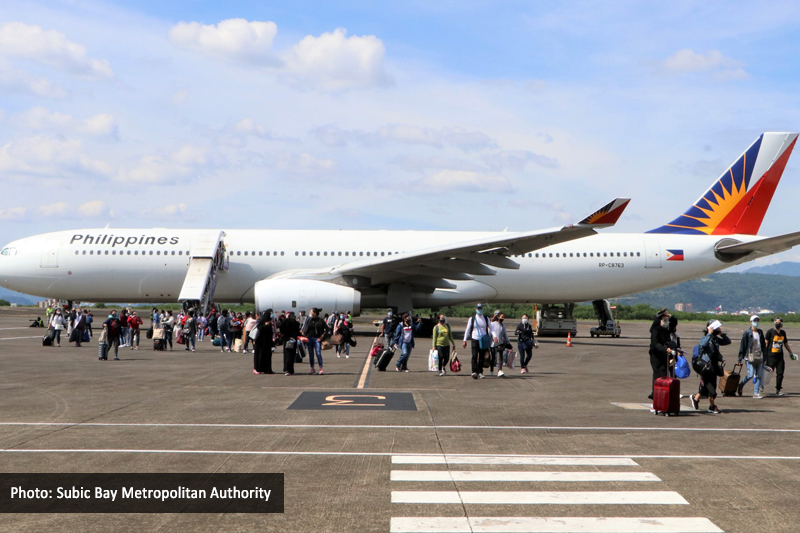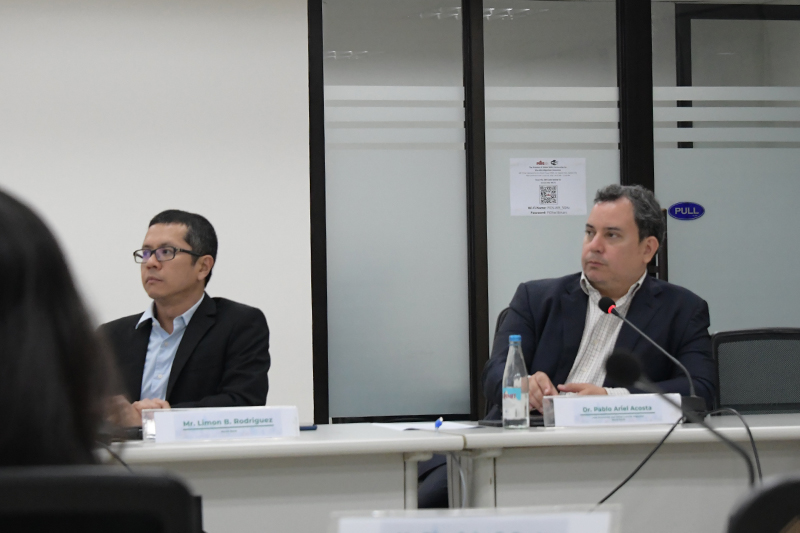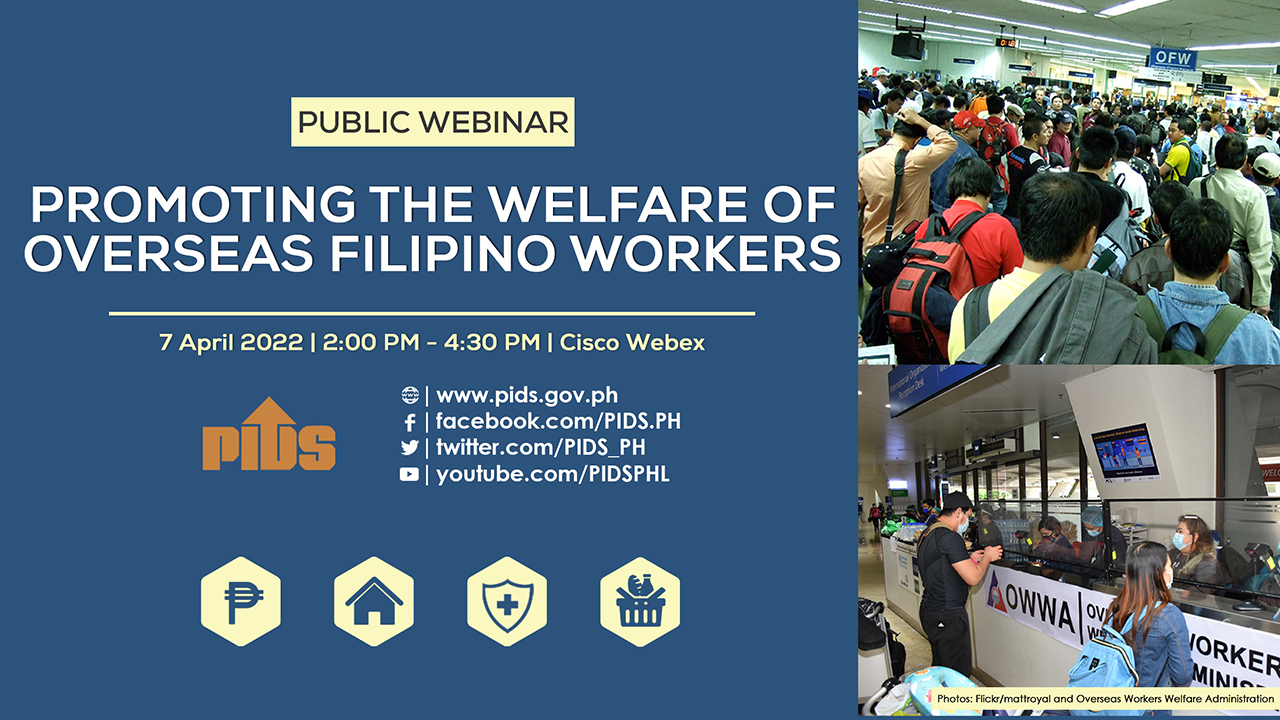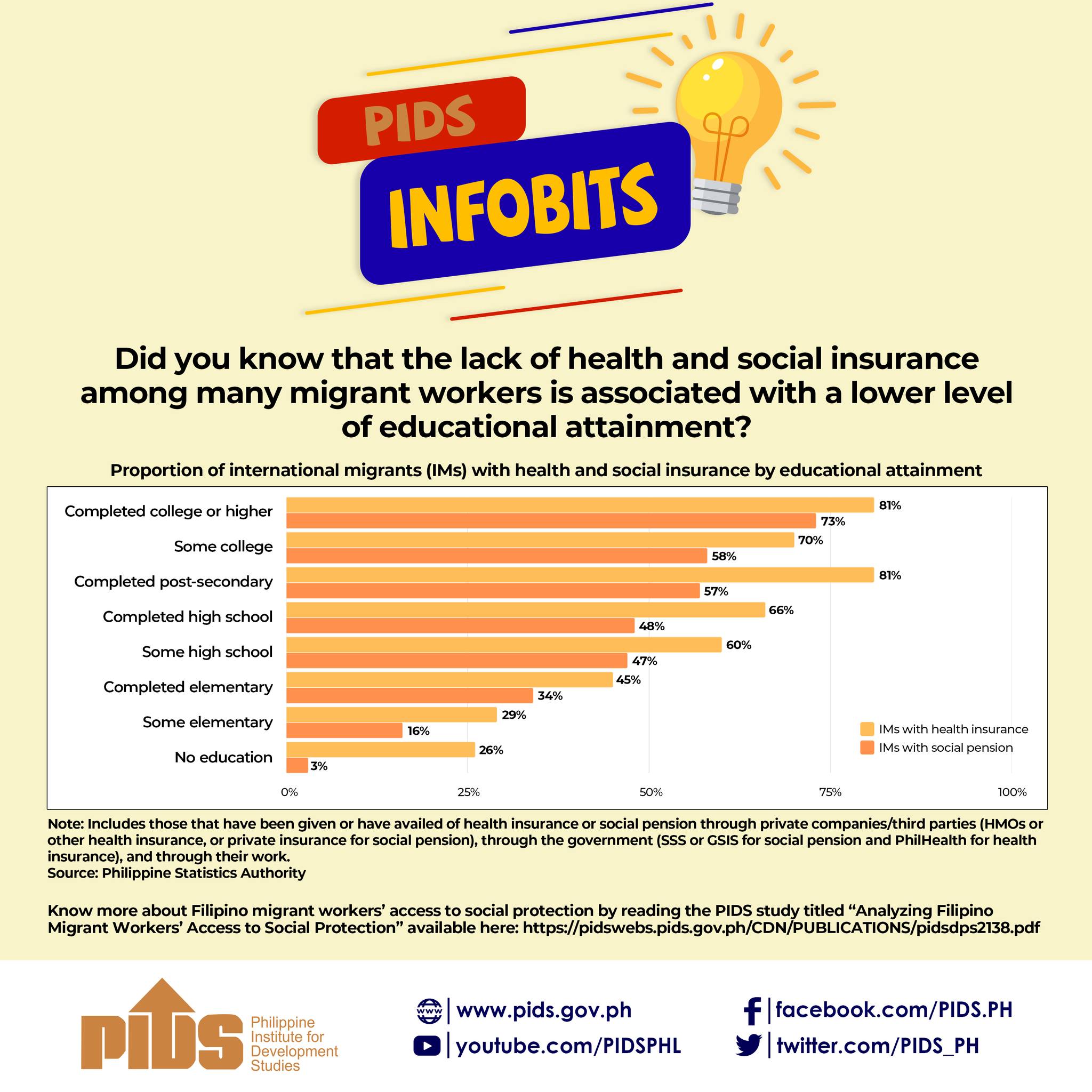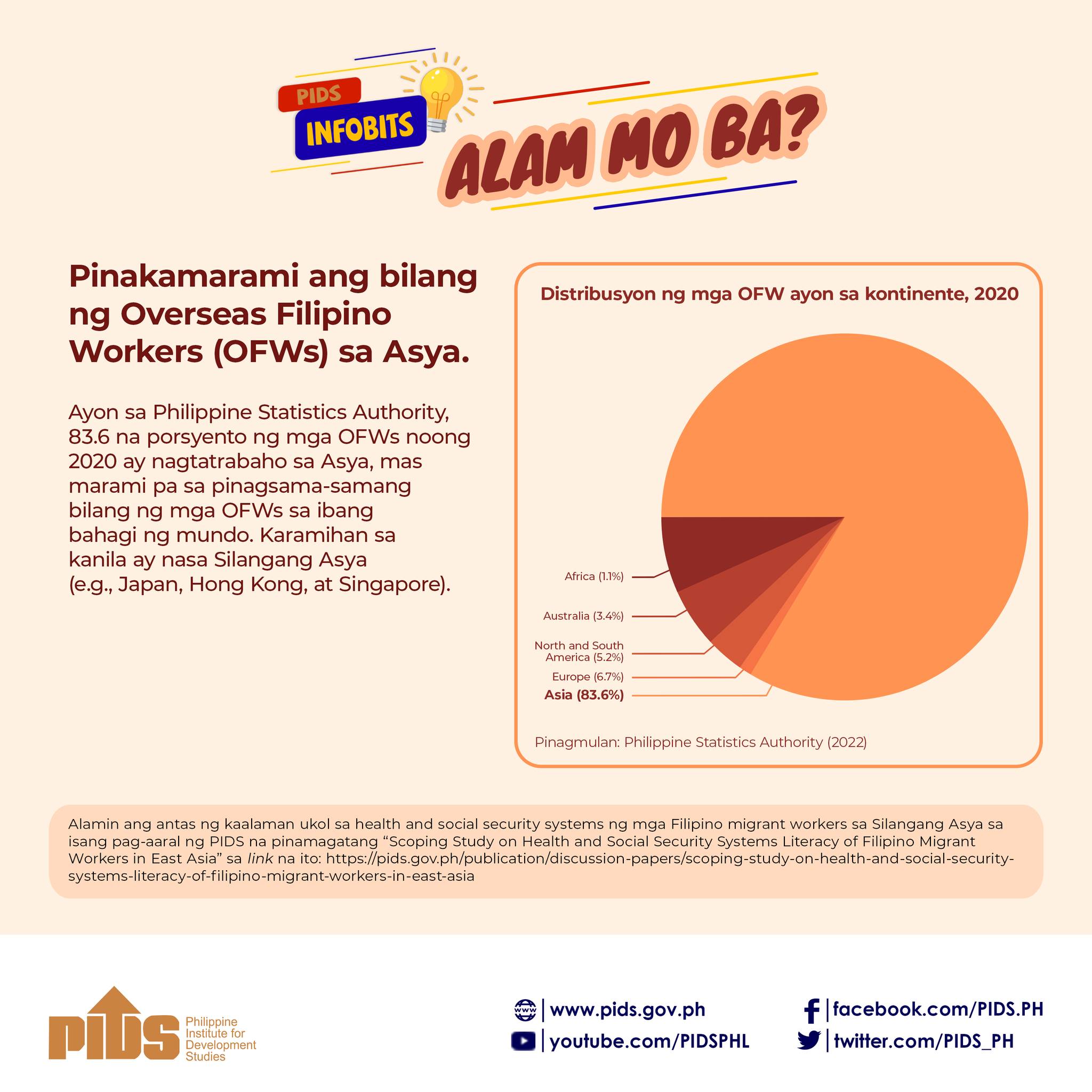The Philippine government considers Overseas Filipino workers (OFWs) as a new breed of economic investors in the country. Much has been said about the economic contributions of OFWs but it is also equally important to look into the effects that migration has on their children left at home. On the positive side, children of migrant workers have better living conditions than their counterparts from non-OFW families. They experience more monetary benefits in terms of food, clothing, education, and savings. While some would think children are satisfied with this, this issue's main article reveals otherwise. OFW children put more premium on time and attention given to them by their parents. More than their children's need for a better education, which is the main reason for migration, parents should also be made aware of the greater need to address the emotional needs of their children. Regular communication is the key and various institutions such as the government, schools, and social groups have roles to play in addressing key issues affecting the welfare of OFW children.

